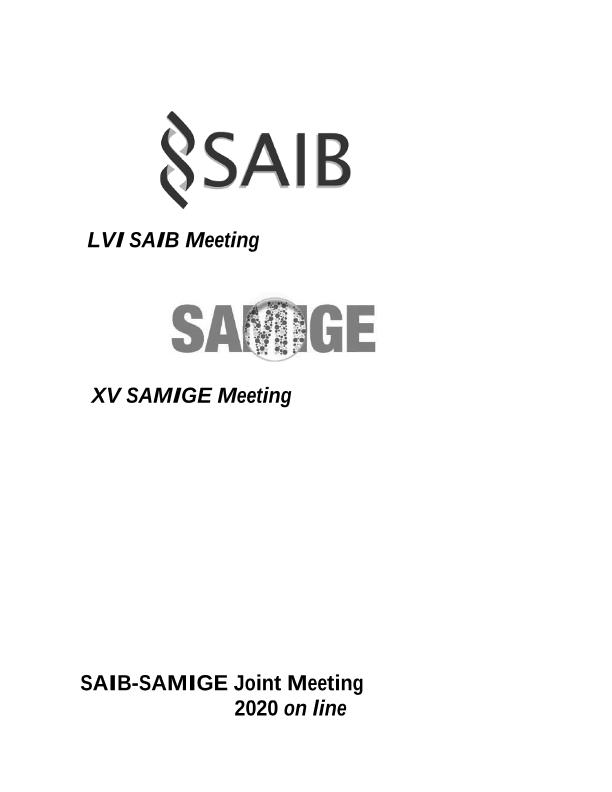Mostrar el registro sencillo del ítem
dc.contributor.author
Leguina, Ana Carolina del Valle

dc.contributor.author
Lacosegliaz, Mariano José

dc.contributor.author
Fernández, Pablo Marcelo

dc.contributor.author
Castellanos, Lucia Ines

dc.contributor.author
Nieto Peñalver, Carlos Gabriel

dc.date.available
2022-12-16T13:54:05Z
dc.date.issued
2020
dc.identifier.citation
Proteomic and physiological characterization of copper effect on quorum sensing regulation in Pseudomonas capeferrum; LVI Annual Meeting Argentine Society for Biochemistry and Molecular Biology and XV Annual Meeting Argentinean Society for General Microbiology; Ciudad Autónoma de Buenos Aires; Argentina; 2020; 1-3
dc.identifier.uri
http://hdl.handle.net/11336/181505
dc.description.abstract
Copper has largely been used for the control of phytopathogen fungi in agriculture, even though to its non-degradability, it tends to accumulate in soils reaching prejudicial levels for soil microorganisms, including rhizomicroorganisms. The rhizosphere is characterized by intense and complex interactions that take place in it. Many of these intra- and interspecies interactions occur through quorum sensing (QS) systems. QS is a cell-to-cell signaling mechanism that control the microbial physiology in a population density manner. Several soil bacteria use QS circuits to regulate important phenotypes. In this work we studied the influence of copper on QS regulation in the plant growth-promoting rhizobacterium (PGPR) Pseudomonas capeferrum WCS358. Firstly, the QS system of the bacterium was inactivated using a quorum quenching strategy. Secondly, intracellular proteins of Ps. capeferrum WCS358 QS+ and QS-, cultured in the presence or absence of copper, were analyzed using liquid chromatography coupled to mass spectrometry. Furthermore, the effects of copper and QS on other activities such us motility, biofilm production and oxidative stress response were also evaluated in Ps. capeferrum WCS358. The QS activity and the presence of metal modified the relative abundance of proteins involved in amino acid and carbohydrate metabolism, oxidative stress defense and nutrient absorption. Besides, results indicated that QS system is implicated in the regulation of motility, biofilm production and oxidative stress response in Ps. capeferrum WCS358 and that copper had a negative effect on these activities. The results presented in this work indicate that QS regulates important traits in Ps. capeferrum WCS358 and that contamination with copper could be detrimental for the QS-dependent phenotypes in this rhizobacterium. Since the modifications observed are related to activities that are significant for the survival and fitness of bacteria, they suggest that QS may confer a competitive advantage to Ps. capeferrum WCS358 and that copper could alter the competence of this PGPR in its natural niche.
dc.format
application/pdf
dc.language.iso
eng
dc.publisher
Tech Science Press

dc.rights
info:eu-repo/semantics/openAccess
dc.rights.uri
https://creativecommons.org/licenses/by-nc-sa/2.5/ar/
dc.subject
QUORUM SENSING
dc.subject
COPPER
dc.subject
INTERACTIONS
dc.subject
RHIZOSPHERE
dc.subject.classification
Biología Celular, Microbiología

dc.subject.classification
Ciencias Biológicas

dc.subject.classification
CIENCIAS NATURALES Y EXACTAS

dc.title
Proteomic and physiological characterization of copper effect on quorum sensing regulation in Pseudomonas capeferrum
dc.type
info:eu-repo/semantics/publishedVersion
dc.type
info:eu-repo/semantics/conferenceObject
dc.type
info:ar-repo/semantics/documento de conferencia
dc.date.updated
2022-12-12T23:16:14Z
dc.journal.pagination
1-3
dc.journal.pais
Argentina

dc.journal.ciudad
Buenos Aires
dc.description.fil
Fil: Leguina, Ana Carolina del Valle. Consejo Nacional de Investigaciones Científicas y Técnicas. Centro Científico Tecnológico Conicet - Tucumán. Planta Piloto de Procesos Industriales Microbiológicos; Argentina
dc.description.fil
Fil: Lacosegliaz, Mariano José. Consejo Nacional de Investigaciones Científicas y Técnicas. Centro Científico Tecnológico Conicet - Tucumán. Planta Piloto de Procesos Industriales Microbiológicos; Argentina
dc.description.fil
Fil: Fernández, Pablo Marcelo. Consejo Nacional de Investigaciones Científicas y Técnicas. Centro Científico Tecnológico Conicet - Tucumán. Planta Piloto de Procesos Industriales Microbiológicos; Argentina
dc.description.fil
Fil: Castellanos, Lucia Ines. Consejo Nacional de Investigaciones Científicas y Técnicas. Centro Científico Tecnológico Conicet - Tucumán. Planta Piloto de Procesos Industriales Microbiológicos; Argentina
dc.description.fil
Fil: Nieto Peñalver, Carlos Gabriel. Consejo Nacional de Investigaciones Científicas y Técnicas. Centro Científico Tecnológico Conicet - Tucumán. Planta Piloto de Procesos Industriales Microbiológicos; Argentina
dc.relation.alternativeid
info:eu-repo/semantics/altIdentifier/url/http://www.samige.org.ar/admin/news/files/170-TSP_BIOCELL_42376.pdf
dc.conicet.rol
Autor

dc.conicet.rol
Autor

dc.conicet.rol
Autor

dc.conicet.rol
Autor

dc.conicet.rol
Autor

dc.coverage
Nacional
dc.type.subtype
Reunión
dc.description.nombreEvento
LVI Annual Meeting Argentine Society for Biochemistry and Molecular Biology and XV Annual Meeting Argentinean Society for General Microbiology
dc.date.evento
2020-11-02
dc.description.ciudadEvento
Ciudad Autónoma de Buenos Aires
dc.description.paisEvento
Argentina

dc.type.publicacion
Journal
dc.description.institucionOrganizadora
Sociedad Argentina de Investigación Bioquímica y Biología
dc.description.institucionOrganizadora
Sociedad Argentina de Microbiología General
dc.source.revista
Biocell

dc.date.eventoHasta
2020-11-05
dc.type
Reunión
Archivos asociados
